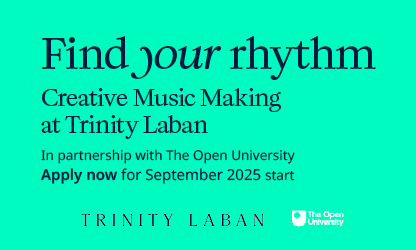A teenager's 6 top tips for engaging with young members
As a young musician and member of ensembles and orchestras there are certain things which I enjoy and others which I don’t and can put me off continuing to go to them
Feeling welcome and comfortable
When first going to a group, feeling included is extremely important: if you are uncomfortable in any social situation, the chances are that you won’t be able to enjoy yourself. In orchestras or ensembles if I don’t feel comfortable I feel very 'visible' and embarrassed which leads to me losing confidence. Being assured, firstly by the leader of the group but also other members, encourages people to feel comfortable with asking questions and being able to play without worrying.
Friends
The social aspect is a large part of the reason that people join groups, especially for people who are my age. Generally there is not much difficulty in making conversation, as people are at the groups for the same reason: a love of music. However, if people are struggling to make friends, simply being introduced to someone by organisers or 'buddies' from the group is often enough of a start.
If people don’t have someone to spend breaks with, chances are they won’t want to return!
Being taken seriously
Being treated like musicians as opposed to children is something which we appreciate and enjoy, especially in groups of a higher standard. Playing interesting repertoire as opposed to simple tunes or arrangements of film scores; regular, compulsory rehearsals; critical conducting; etc. can help to encourage people to participate and develop skills. Having said that, a balance is needed: being able to have a laugh in rehearsals helps to put members at ease and helps to create a sense of inclusion.
Getting the skills balance right
If you are in a group where you are either struggling with the music or where the music is too easy, it is easy to be discouraged. If a group has mixed standards it is important that the group leader finds out each members’ level of playing prior to them joining, but if they still feel uncomfortable with the standard of the part they are given it is important that they feel able to approach the leader and explain. People may be wary of joining groups for this reason, so advertising that groups are open to a variety of standards may encourage people to join.
Concerts and tours
The incentive of a concert or tour at the end of a term's (or even year’s) rehearsals can encourage people greatly to stay in a group and motivates people to work hard on their parts, as everyone wants the concert to be as good as it can possibly be.
Performing makes all the hard work feel worthwhile, leaves performers feeling immensely proud, and leaves everyone wanting to do it all over again!
Concerts are a great way of gaining publicity, and also diversifying the age of audiences. My friends come to watch my orchestra concerts and all really enjoy them although they don’t always expect to. As well as diversifying the age of people in music groups it is important that the age of the audience is changing as well, as it encourages young people to listen and take part in more classical music. Ask performers to spread the word to friends, post on social media, hand out leaflets etc.
Repertoire
Playing repertoire which I find uninteresting or (as above) that is to the wrong standard can put me off returning to the group or stop me from completely enjoying rehearsals. The main way people will find out about groups is through friends or by going to concerts and if they don’t like what they hear they won’t be very likely to join!
When group leaders ask members how they’re enjoying what they’re playing and what else they might like to play, they can get a sense of what people would enjoy and members gain a sense of inclusion. Playing something which has been chosen by the group motivates members and makes them work even harder.
Final top tips!
|
Get more tips on recruiting and engaging young members and audiences in our Resources.



